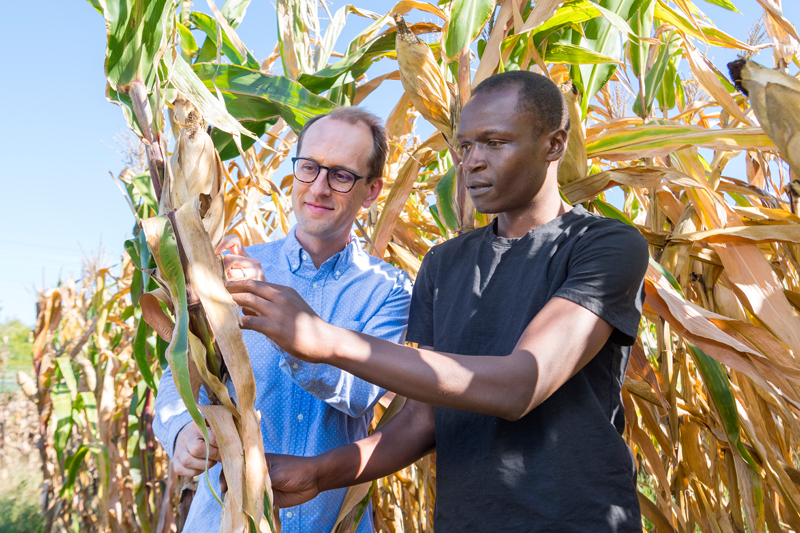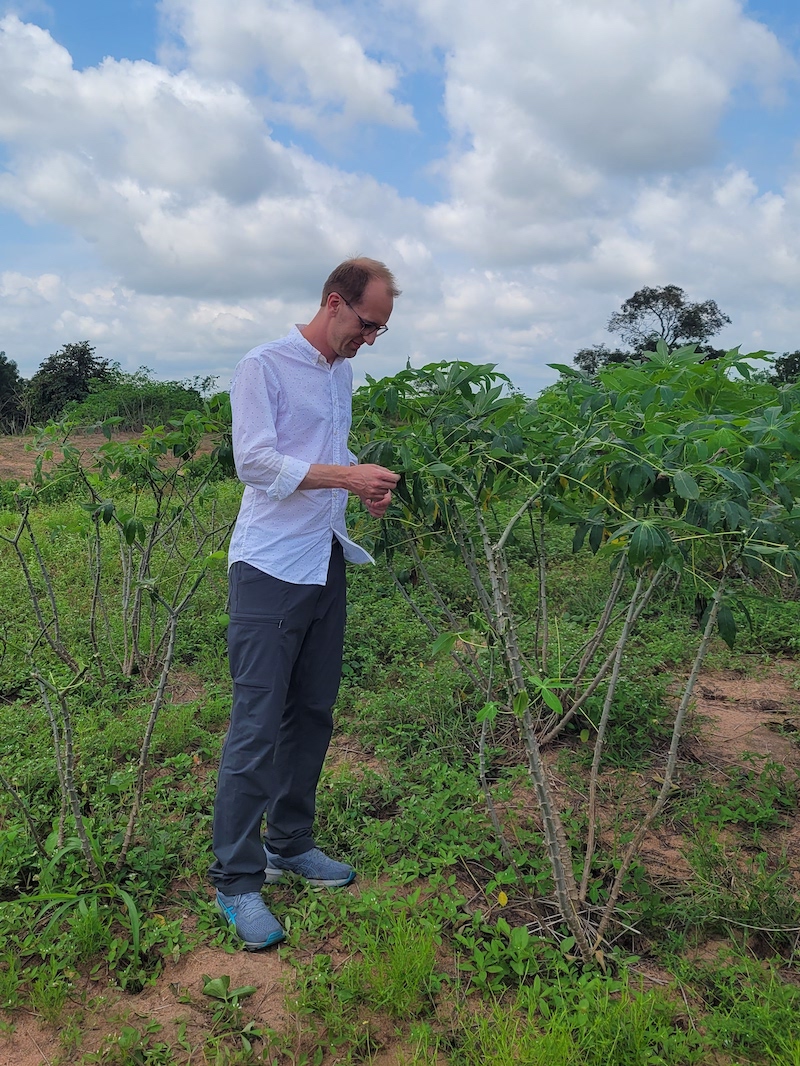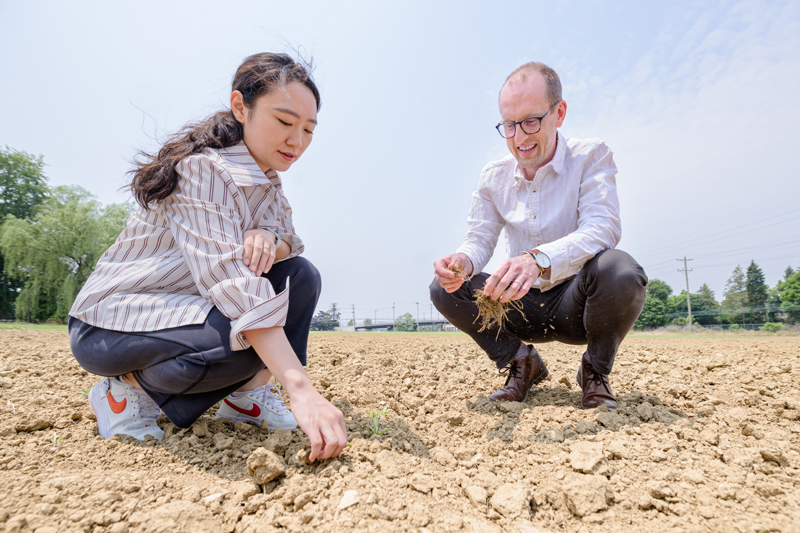


Early Career Award
Photos by Kathy F. Atkinson and Evan Krape and courtesy of Kyle Davis October 05, 2023
UD’s Kyle Davis receives 2023 Global Environmental Change Early Career Award from the American Geophysical Union
One of the most extensive ways humans modify the planet is through agricultural practices. At the University of Delaware, assistant professor Kyle Davis has been conducting research on sustainable agricultural food systems on a global scale for many years, thinking about how these systems, because of their vast impact, can also act as a catalyst for addressing issues related to sustainability.
This research, as well as the mentoring of graduate students and the research they are conducting in his lab, earned Davis a 2023 Global Environmental Change Early Career Award from the American Geophysical Union (AGU).
Davis, an assistant professor in the Department of Geography and Spatial Sciences and the Department of Plant and Soil Sciences, as well as a resident faculty member with UD’s Data Science Institute, said he was honored and humbled to receive the award and that he feels deeply fortunate to get to do research he loves and to work on new science with students from across the university.
“One of the greatest joys of the job is being able to mentor graduate students,” Davis said. “I feel really lucky to get to work with a group of incredibly talented and enthusiastic graduate students who come from all over the world.”
Davis said that, in a lot of ways, the research he conducts has grown through working with graduate students, coming up with ideas and exploring those ideas together.
“So much of my research is the result of their passion, abilities, drive, and creativity,” Davis said.
The Davis Lab conducts research on a global scale and also has a key focus on four main countries: the United States, China, India and Nigeria. The research in those areas takes on different forms and looks at different questions.

In the U.S., for instance, the research is primarily focused on addressing questions related to water scarcity and food production in the West.
The research in Nigeria concentrates on addressing agricultural data and information needs across the country, while the work in India and China is focused on questions related to crop production, nutrition, farmer livelihoods and water sustainability.
“We look at the nutritional supply and climate resilience of different crops and their associated water, energy, fertilizer and pesticide needs and try to find opportunities to improve all of these outcomes simultaneously,” Davis said.
When it comes to sustainability, Davis is interested in thinking about how sustainability is defined and who is ultimately involved in those definitions of sustainability. Depending on who has a seat at the table and what their priorities are, there can emerge vastly different definitions of what “sustainability” means.
“Once there is agreement on a definition, I’m also interested in finding out to what extent we can actually measure or quantify those different facets and dimensions of sustainability,” Davis said. “And for those aspects that we’re able to measure, how can we use those measures to start identifying solutions that produce win-wins across a variety of different dimensions of sustainability as it applies to food systems.”
Davis said that more and more, when it comes to his research, he is interested in making sure that he produces actionable science.
“I want the research that I do to help contribute to decision making and being useful to stakeholders in the different geographies that I’m interested in,” Davis said. “I feel fortunate to be in departments that value that and where there are many other researchers doing the same thing. My fellow faculty members are engaged and invested in the communities they work with, and I feel inspired by that daily. Even if we are working on different subjects or in different places, there is a common understanding that the work that we are doing can have a positive impact, and it’s great to be around people so dedicated to that.”

Contact Us
Have a UDaily story idea?
Contact us at ocm@udel.edu
Members of the press
Contact us at 302-831-NEWS or visit the Media Relations website

